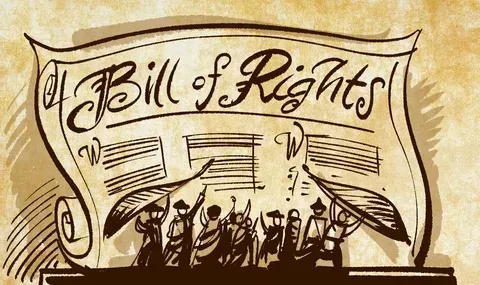If Your Employer Violates the WARN Act, Our Labor Lawyers Can Get You a Settlement

When a worker is laid off from their job without any warning and through no fault of their own, the indignity of the occurrence and the sudden financial shock for themselves and their families can create terrible circumstances going forward. Thankfully, the government has recognized the problem, and they have tried to mitigate it to the extent possible, by creating and enforcing the Worker Adjustment and Retraining Notification (WARN) Act. The WARN Act requires employers to provide provides up to 60 days of pay and benefits to those workers who are unlawfully laid off without proper advance written notice.
Who May Be Impacted by the WARN Act?
Under the WARN Act, all employers with 100 or more employees who have worked at least 20 hours per week during the previous 12 months, must provide all of them with a least 60 days written notice, whether the employer plans a large (50 or more workers) layoff, or even when they plan to shut down or close the workplace. The obligation falls to them regarding all employers, including hourly and salaried workers, and including those who perform administrative, managerial and supervisory functions, and not just lower-level workers.
Any employer's "plant" can be found liable for a violation of the WARN Act when such a violation is identified. A "plant" under the WARN Act is defined as any employment site or one or more facilities or operating units operating within an employment site. If any such "plant" is to be shut down, and that shutdown is to result in the termination of 50 or more employees during any 30-day period, notice is required. Even if there is no "plant" closing, the employer is required to give 60 days notice if the layoff will result in loss of 500 or more employee jobs during any 30-day period, or for workplaces subject to the WARN Act with 50-499 employees jobs, if they constitute at least 33% of the active workforce at the time of the layoff.
How Commonly Does the WARN Act Play a Role?
The fact of the matter is, studies show that neither workers nor employers are fully aware of the impact of a worker's rights under the WARN Act. In many cases, because of the workers' relative disinterest in the law, many employers exploit that lack of knowledge of the WARN Act for their own benefit. That is where the experienced Employment Litigation Attorneys at Lento Law Group can help. They have handled multiple cases of litigation involving the WARN Act, which means they can act quickly to protect every worker's rights and preserve any potential claims they may have against their employer.
And those claims can be considerable. If an employer is found to have violated the notice requirement of the WARN Act, they will owe each affected worker back pay and benefits for the time of the violation, up to 60 days, although the courts seem unable to agree on the amount of back pay workers should get. While most courts believe back pay should be measured by the number of work days during the violation period, some others believe it should be measured by the number of calendar days in the violation period.
A lawsuit may be brought in federal court by either an individual worker who has been denied his or her rights under he WARN Act, or a labor union representative. However, everyone should understand that the Department of Labor has no enforcement authority under the WARN Act, which means they don't generally.
When a worker is laid off from their job without any warning and through no fault of their own, the indignity of the occurrence and the sudden financial shock for themselves and their families can create terrible circumstances going forward. Thankfully, the government has recognized the problem, and they have tried to mitigate it to the extent possible, by creating and enforcing the Worker Adjustment and Retraining Notification (WARN) Act. The WARN Act requires employers to provide provides up to 60 days of pay and benefits to those workers who are unlawfully laid off without proper advance written notice.
If an Employer Violates the WARN Act, What Do They face?
Under the WARN Act, all employers with 100 or more employees who have worked at least 20 hours per week during the previous 12 months, must provide all of them with a least 60 days written notice, whether the employer plans a large (50 or more workers) layoff, or even when they plan to shut down or close the workplace. The obligation falls to them regarding all employers, including hourly and salaried workers, and including those who perform administrative, managerial and supervisory functions, and not just lower-level workers.
Any employer's "plant" can be found liable for a violation of the WARN Act when such a violation is identified. A "plant" under the WARN Act is defined as any employment site or one or more facilities or operating units operating within an employment site. If any such "plant" is to be shut down, and that shutdown is to result in the termination of 50 or more employees during any 30-day period, notice is required. Even if there is no "plant" closing, the employer is required to give 60 days notice if the layoff will result in loss of 500 or more employee jobs during any 30-day period, or for workplaces subject to the WARN Act with 50-499 employees jobs, if they constitute at least 33% of the active workforce at the time of the layoff.
How Commonly is the WARN Act in Play?
The fact of the matter is, studies show that neither workers nor employers are fully aware of the impact of a worker's rights under the WARN Act. In many cases, because of the workers' relative disinterest in the law, many employers exploit that lack of knowledge of the WARN Act for their own benefit. That is where the experienced Employment Litigation Attorneys at Lento Law Group can help. They have handled multiple cases of litigation involving the WARN Act, which means they can act quickly to protect every worker's rights and preserve any potential claims they may have against their employer.
And those claims can be considerable. If an employer is found to have violated the notice requirement of the WARN Act, they will owe each affected worker back pay and benefits for the time of the violation, up to 60 days, although the courts seem unable to agree on the amount of back pay workers should get. While most courts believe back pay should be measured by the number of work days during the violation period, some others believe it should be measured by the number of calendar days in the violation period.
A lawsuit may be brought in federal court by either an individual worker who has been denied his or her rights under he WARN Act, or a labor union representative. However, everyone should understand that the Department of Labor has no enforcement authority under the WARN Act, which means they don't bring suits or investigate complaints related to the WARN Act.
Any employer who is found liable for failing to provide notice of a pending as required to a unit of local government is subject to a civil penalty not to exceed $500 for each day of violation. However, they may be able to avoid any penalty if the employer satisfies its commitment to each affected employee within three weeks after they close the workplace.
The WARN Act labor attorneys at the Lento Law Group have the skills needed to get workers who are subject to the WARN Act the settlement they need to make themselves whole, even if they have been seriously injured as a result of their violation of their responsibilities. Give us a call, so we can get started with protecting your rights in the workplace. At Lento Law Group, all consultations are free, and we don't collect one thin dime unless we win your case and we get you a settlement you deserve.
More News & Resources











